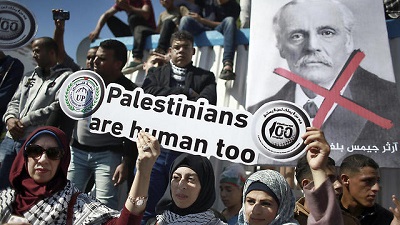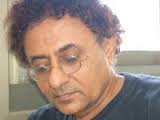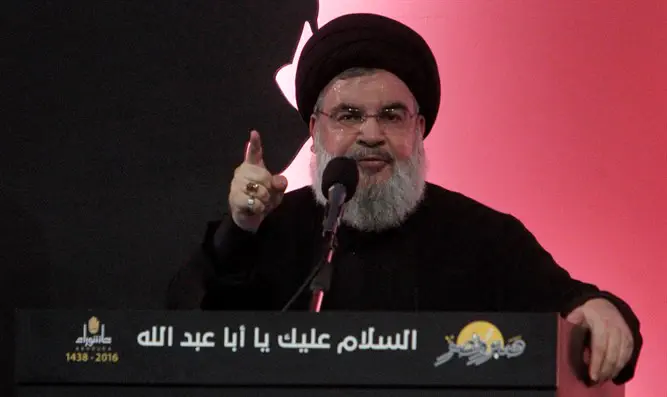 Każdy naród ma swoją “Nakbę”
Każdy naród ma swoją “Nakbę”
Ben-Dror Yemini
tłumaczenie: Małgorzata Koraszewska
 Palestyńczycy w Gazie protestują przeciwko Deklaracji Balfour w jej 100. rocznicę. Twierdzenie, że palestyńscy mieszkańcy byli ignorowani, jest bezpodstawne. (Zdjęcie: AP)
Palestyńczycy w Gazie protestują przeciwko Deklaracji Balfour w jej 100. rocznicę. Twierdzenie, że palestyńscy mieszkańcy byli ignorowani, jest bezpodstawne. (Zdjęcie: AP)
Na twierdzenie o niesprawiedliwości, jakiej doznali arabscy mieszkańcy Palestyny z powodu Deklaracji Balfoura, należy patrzeć na tle rzeczywistości i norm pierwszej połowy XX wieku. Setki milionów ludzi odzyskały ojczyzny narodowe i niepodległość, a dziesiątki milionów doświadczyło jakiegoś rodzaju “nakby”, włącznie z Żydami w krajach arabskich.
Deklaracja Balfoura nie była gromem z jasnego nieba. Nie była wynikiem jakiejś cudownej siły żydowskiej ani kapitału żydowskiego. Żeby to zrozumieć, musimy spojrzeć na szersze tło historyczne.
Kończyła się pierwsza wojna światowa. Główną cechą tych dni był rozpad imperiów i odrodzenie się idei narodowej. A koniec każdej ery imperialnej daje w rezultacie kolejną falę wyzwolenia narodowego. Rozpad Imperium Austro-Węgierskiego, jak również rozpad Imperium Osmańskiego stworzyły nowe państwa narodowe. Przesuwano granice.
Wyzwolenie narodowe, niemal każde wyzwolenie narodowe, pociągało za sobą ogromne koszty. Populacje były przenoszone, zazwyczaj przymusowo, by dać idei wyzwolenia narodowego jakąś podstawę.
To nie był koniec. Rozpad Związku Radzieckiego także doprowadził do ustanowienia szeregu nowych państw narodowych. Rozpad Jugosławii, państwa wielonarodowego, doprowadził do założenia siedmiu jednostek narodowych – jak również do czystek etnicznych na wielką skalę.
Kilka miesięcy przed Deklaracją Balfoura francuski dygnitarz z francuskiego ministerstwa spraw zagranicznych, Jules Cambon, wysłał list to przywódcy syjonistycznego Nahuma Sokołowa, stwierdzający, że “będzie czynem sprawiedliwym i zadośćuczynieniem pomaganie przez Ententę w odrodzeniu narodowości żydowskiej w Ziemi, z której naród Izraela został wygnany tak wiele stuleci temu”. Wielka Brytania porozumiała się z Francją i Stanami Zjednoczonymi przed wydaniem tej deklaracji.
Dwa miesiące po Deklaracji Balfoura prezydent USA, Woodrow Wilson, wydał swoje Czternaście Punktów, które były związane prawem do samostanowienia. Innymi słowy, uznano prawo każdej społeczności, która była pod rządami imperialnymi, do niepodległości, wolności i suwerenności. Idea wyzwolenia narodowego i państwa narodowego jest ideą antyimperialną. To prawda, że w dzisiejszych czasach znowu słychać głosy post-narodowe i anty-narodowe, nawet w małym Izraelu, ale te głosy wydają się świadczyć o słabnięciu pamięci historycznej.
Syjonizm był ruchem narodowym, jednym z wielu, który wykorzystał dobrą koniunkturę na tę ideę, tak samo jak najwyżsi reprezentanci świata arabskiego starali się o suwerenność i niepodległość w oparciu o tę samą ideę. W odróżnieniu od innych narodów, które były mniejszością na danym terytorium, Żydzi byli mniejszością narodową pod rządami wielu państw i imperiów.
Był jeden moment w historii, bezpośrednio po ogłoszeniu Deklaracji Balfoura, kiedy żydowski nacjonalizm i arabski nacjonalizm miały nawet wspólne interesy. To znalazło swoje odbicie w porozumieniu Faisal–Weizmann, podpisanym w 1919 r. Profesor Efraim Karsh pisze o arabskiej i muzułmańskiej akceptacji Deklaracji Balfoura i idei narodowości żydowskiej. Także Talaat Pasza, jeden z władców upadającego Imperium Osmańskiego, które zamieniło się w tureckie państwo narodowe, wyraził poparcie dla prawa Żydów do narodowego domu w Palestynie.
Głównym argumentem wysuwanym przez przeciwników Deklaracji Balfoura jest to, że ignoruje narodowe aspiracje mieszkańców tego obszaru. To jest nieścisłe. Przede wszystkim, sama Deklaracja Balfoura zakazuje dokonywania im jakiejkolwiek szkody. Po drugie, ich aspiracje narodowe były honorowane jako część arabskiego państwa, które ówcześni przywódcy arabscy, włącznie z Emirem Faisalem, chcieli założyć na większości terytoriów Bliskiego Wschodu.
Pięć lat po Deklaracji Balfoura, kiedy już została zatwierdzona przez Ligę Narodów, podjęto inną decyzję, by założyć inne państwo – Transjordanię – na ziemiach rządzonych przez mandat brytyjski, które były przeznaczone na państwo żydowskie.
Kolejny podział miał miejsce w 1947 r. i zachodnia strona rzeki Jordan została podzielona między żydowski Jiszuw a arabskich mieszkańców Palestyny. Ich prawo narodowe było honorowane. Prawo Arabów do państwowości było realizowane we wszystkich sąsiednich państwach. To uznanie stosowało się także do tych, którzy później stali się Palestyńczykami.
Ale sam świat arabski nie dopuścił do wprowadzenia w życie tego prawa. Ziemie były w ich posiadaniu. Nie było okupacji. Niemniej nie stworzono państwa palestyńskiego w latach 1949-1967. Tak więc twierdzenia, że ignorowano mieszkańców Palestyny są całkowicie bezpodstawne.
To prawda, że była Nakba. Palestyńczycy uciekli, a część została wygnana. To zdarzyło się we wszystkich niemal konfliktach narodowych i to zdarzyło się także Palestyńczykom z powodu arabskiego odrzucenia wszelkiego kompromisu, włącznie z planem podziału ONZ.
Na twierdzenie o niesprawiedliwości, jakiej doznali arabscy mieszkańcy Palestyny z powodu Deklaracji Balfoura, należy patrzeć na tle rzeczywistości i norm pierwszej połowy XX wieku. Setki milionów ludzi zdobyły wyzwolenie narodowe i niepodległość, a dziesiątki milionów doświadczyło jakiegoś rodzaju “nakby”, włącznie z żydowską nakbą Żydów w krajach arabskich. Kontekst historyczny nie powinien przeszkodzić rozwiązaniu konfliktu. Wręcz odwrotnie – plasuje ten konflikt w jego rzeczywistym miejscu.
 Ben-Dror Jemini
Ben-Dror Jemini
(ur. 1954 w Tel Awiwie) jest prawnikiem, historykiem i publicystą wielu izraelskich dzienników (m.in. Maariw, Jediot Achronot), a także wykładowcą, który zajmuje się m.in. wpływem antyizraelskiej propagandy.
Pochodzi z rodziny Żydów wypędzonych z Jemenu.
Ben-Dror Yemini jest zwolennikiem pogłębiania dialogu z Palestyńczykami. Od wielu lat opowiada się za niepodległym państwem palestyńskim.
twoje uwagi, linki, wlasne artykuly, lub wiadomosci przeslij do: webmaster@reunion68.com




